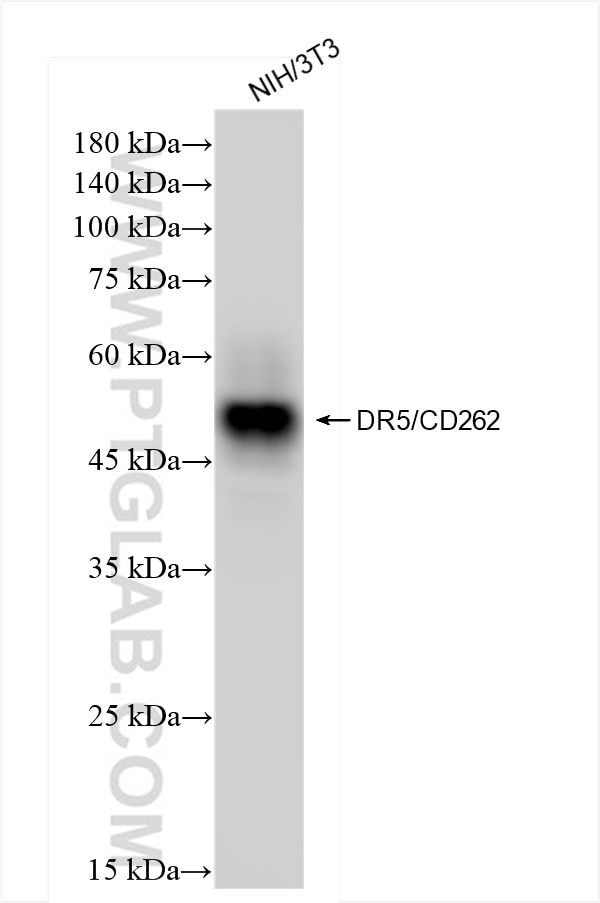Validation Data Gallery
Tested Applications
Recommended dilution
| Application | Dilution |
|---|---|
| It is recommended that this reagent should be titrated in each testing system to obtain optimal results. | |
Product Information
84524-4-PBS targets DR5 in WB, Indirect ELISA applications and shows reactivity with mouse samples.
| Tested Reactivity | mouse |
| Host / Isotype | Rabbit / IgG |
| Class | Recombinant |
| Type | Antibody |
| Immunogen | FusionProtein 相同性解析による交差性が予測される生物種 |
| Full Name | tumor necrosis factor receptor superfamily, member 10b |
| Calculated molecular weight | 42kDa |
| Observed molecular weight | 50 kDa |
| GenBank accession number | NM_020275.4 |
| Gene Symbol | DR5 |
| Gene ID (NCBI) | 21933 |
| Conjugate | Unconjugated |
| Form | Liquid |
| Purification Method | Protein A purfication |
| UNIPROT ID | Q9QZM4 |
| Storage Buffer | PBS only , pH 7.3 |
| Storage Conditions | Store at -80°C. |
Background Information
DR5, also known as CD262, TNFRSF10B, TRAILR2, TRICK2 and KILLER, is a widely expressed single-pass type I membrane protein belonging to the tumour necrosis factor receptor superfamily (TNFRSF). It is a receptor for TNF-related apoptosis-inducing ligand (TRAIL), which is a member of the tumor necrosis factor (TNF) family of cytokines and induces apoptosis in a wide variety of cells (PMID: 9311998). DR5 contains two extracellular cysteine-rich repeats, typical for TNF receptor (TNFR) family members, and a cytoplasmic death domain (DD), through which DR5 is capable to transmit the apoptotic signal (PMID: 9311998; 20531300).
